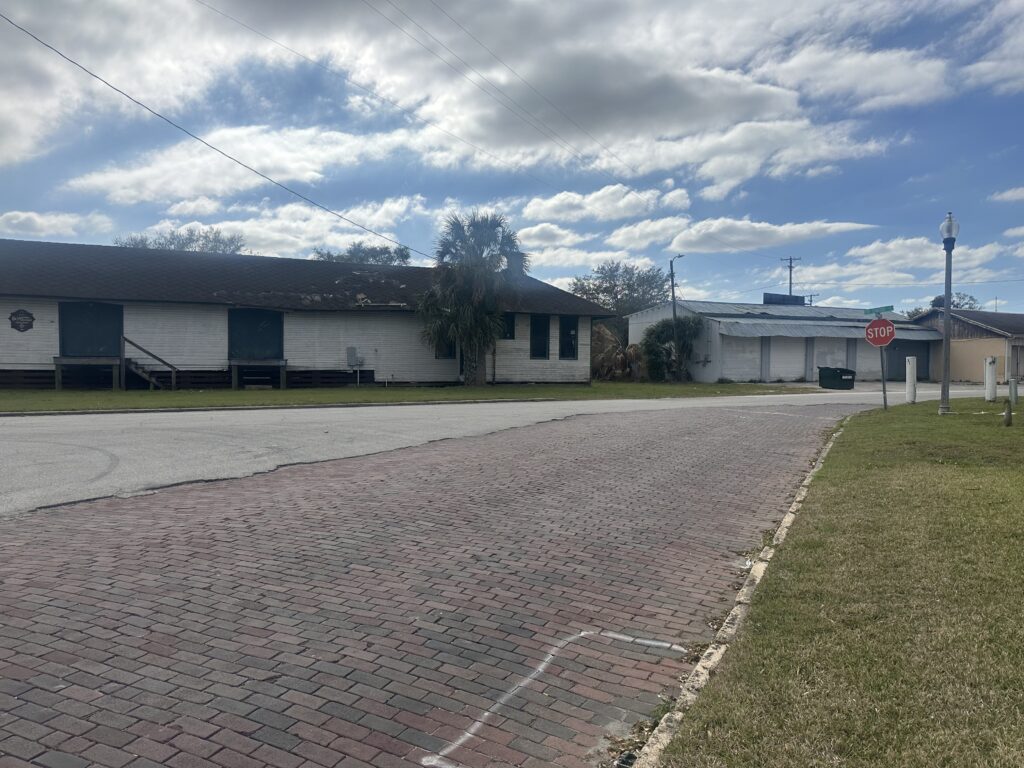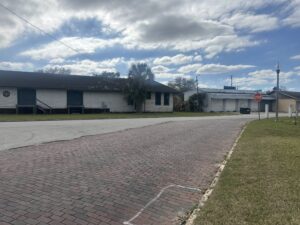
Key Points

City hopes upgrades will help revitalize downtown
By Teresa Sargeant
Reporter
Representatives of the Station Street redevelopment updated the City Council this week on the ongoing project that isintended to foster interconnectivity with the rest of downtown Apopka.
At the Wednesday, Feb. 19, Apopka City Council meeting, Kenneth Polsinelli and Jason Schaller, partners of the Winter Park-based real estate firm Peacock Capital, showed the Station Street development’s conceptual site plan, overall layout, and specific amenities and interior finishes of the apartments. All displayed renderings were not final concepts.
Polsinelli described the unit prices as “affordable market rate.” The one-bedroom rent rate at under 800 sq. ft. would be$1,499 per month, and the two-bedroom rent rate under 1,100 sq. ft. would be $1,699 per month.
“[The project] really integrates into the existing retail to take advantage of all the redevelopment and gentrification that’s happening right in downtown Apopka,” he said. “Thatconnection with the [downtown Apopka] trail, the connection with the surrounding retail, and then this becomes the catalyst for additional development because it puts a lot of density downtown with 54 families living down there, that will spur growth.”
The Station Street redevelopment will include a 30-unit building and a 24-unit building, both with one- and two-bedroom units. The project will have a shared-use parking lot that apartment residents and downtown visitors alike could use, and a common plaza for events including a staging area for live performances and a section for food trucks.
According to the partners, the apartment buildings will be constructed out of cold-formed steel using 100 percent domestic steel coming from South Carolina. The units will be energy-efficient, have all-solid plywood cabinets, customized flooring that are manufactured and shipped from overseas, timeless finishes, tall ceilings with LED recessed lighting, and huge windows so residents could view the performances and activity in the common plaza, the downtown surroundings and the rest of the city.
“The way we design our buildings and the way that we think about this, it truly accommodates workforce and workforce housing,” Schaller said. “But the luxury finishes on the interior are that similar to what you would see inside of a Class A apartment building.”
Right now, Peacock Capital is going through all the site work including survey and utility updates, site plan approval with the city, as well as prepare the brownfield application with the city to send to the state. All this will take a six to eight-month process, Polsinelli said. Once those details are finalized, both buildings can get built in about six months, he said.
Station Street is a designated brownfield. The U.S. Environmental Protection Agency website defines a brownfield as “a property, the expansion, redevelopment, or reuse of which may be complicated by the presence or potential presence of a hazardous substance, pollutant, or contaminant.”
Commissioner Diane Velazquez pointed out that plans to revive Station Street began in 2022. From the paperwork she had that reflect the conversations about the Station Street project, she was trying to figure out why nothing happened with the redevelopment yet.
“I’m kind of just trying to figure out what happened between 2022 and today that nothing really has been done and it’s just the process is just going to start now,” Velazquez said.
In response, Polsinelli said that the process in bringing the Station Street Project through fruition was through changes in city staff, getting the development agreement approved, and legal work. The development agreement was finally approved in summer 2024.
“Our community is really asking for some movement down in Station Street, and you are really the kind of the anchor we have to start putting residents in that area. We have to start building in that area,” Velazquez said. “A lot of our residents are asking when are they going to start moving dirt.”
According to Polsinelli, Peacock Capital owns and operates approximately 2,300 departments across Central Florida, including some in Apopka. Customers who generally live within Peacock Capital residences generally earn between $60,000 and $140,000 per year. Peacock Capital isn’t dependent on any government subsidies.
“The people who live with us are honest, hardworking people that have to get up and go to work every single day to pay their bills,” Polsinelli said.
Commissioner Nick Nesta expressed appreciation for Polsinelli answering his questions and explained that his own goal with the Community Redevelopment Agency (CRA) District in downtown Apopka is to start creating building standards with consistent, cohesive colors to produce a vibrant downtown area.
“I’d like to try to get on the same page with our CRA and have our CRA kind of create something as well that we can all kind of blend together, I think would be beneficial,” Nesta said.
The Apopka Chief is an award-winning weekly newspaper serving the greater Apopka area in Central Florida since 1923.
Follow The Apopka Chief on Facebook.
Follow The Apopka Chief on X.
Follow The Apopka Chief on Instagram.
Suggested Articles
No related articles found.


